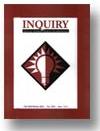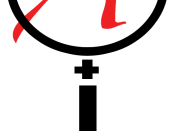Abstract
In order to more thoroughly understand the components of critical thinking, decision making, and their value to the processes of evaluating arguments and probabilities, critical thinking must combined into the process problem solving and decision making as a guide to developing beliefs and taking action.
In this paper I will explain critical thinking, examine the relationship between critical thinking and the decision making process, explain the benefits of being a critical thinker and give examples of how critical thinking can be applied in our daily life's The basic definition of critical thinking is disciplined intellectual criticism that combines research, knowledge of historical context, and balanced judgment (Encarta Dictionary 2004). Another definition of critical thinking is this one Critical thinking is thinking that proceeds on the basis of careful evaluation of premises and evidence and comes to conclusions as objectively as possible through the consideration of all pertinent factors and the use of valid procedures from logic (Carter, 1973).
The definition of critical thinking as the authors of our course material define it can be explained with an excerpt from our text. What is critical thinking? Critical thinking means thinking clearly and intelligently. More precisely, critical thinking is the general term given to a wide range of cognitive skills and intellectual dispositions needed to effectively identify, analyze, and evaluate arguments and truth claims, to discover and overcome personal prejudices and biases, to formulate and present convincing reasons in support of conclusions, and to make reasonable, intelligent decisions about what to believe and what to do. Put somewhat differently, critical thinking is disciplined thinking governed by clear intellectual standards. Among the most important of these intellectual standards are clarity, precision, accuracy, relevance, consistency, logical correctness, completeness, and fairness. Critical thinking is what a college education is all about. In many high...


